Abstract
The antibacterial activity of four aminoglycoside antibiotics (gentamicin, Sch 13706, tobramycin, and sisomicin) was tested against eight gram-negative and three gram-positive species. A total of 323 strains were studied by the broth dilution technique. Tobramycin and sisomicin had greater bacteriostatic and bactericidal activity against Pseudomonas strains than did gentamicin and Sch 13706. Of the four antibiotics, sisomicin was most active against Klebsiella, Enterobacter, Escherichia coli, indole-negative and -positive Proteus, and Streptococcus pyogenes. Gentamicin was most effective against Serratia. A fourfold or greater difference existed frequently between the minimal inhibitory and bactericidal concentrations of all antibiotics against Enterobacter and Serratia. This difference was greatest with tobramycin. Staphylococcus aureus was highly susceptible, Providencia relatively resistant, and enterococcus uniformly resistant to the antibiotics studied. Agar diffusion susceptibility testing with gentamicin and tobramycin showed that organisms susceptible to less than 6.2 μg/ml usually yielded zones 17 to 26 mm in diameters. Zones of 15 to 16 mm represented intermediate susceptibility which varied with the organism and antibiotic. Several Serratia strains required 6.2 to 12.5 μg of gentamicin/ml or 25 to 50 μg of tobramycin/ml for bactericidal activity despite minimal inhibitory concentrations of 0.09 to 3.1 μg/ml and zone sizes greater than 13 and 17 mm, respectively. Studies with Enterobacter and tobramycin yielded similar results.
Full text
PDF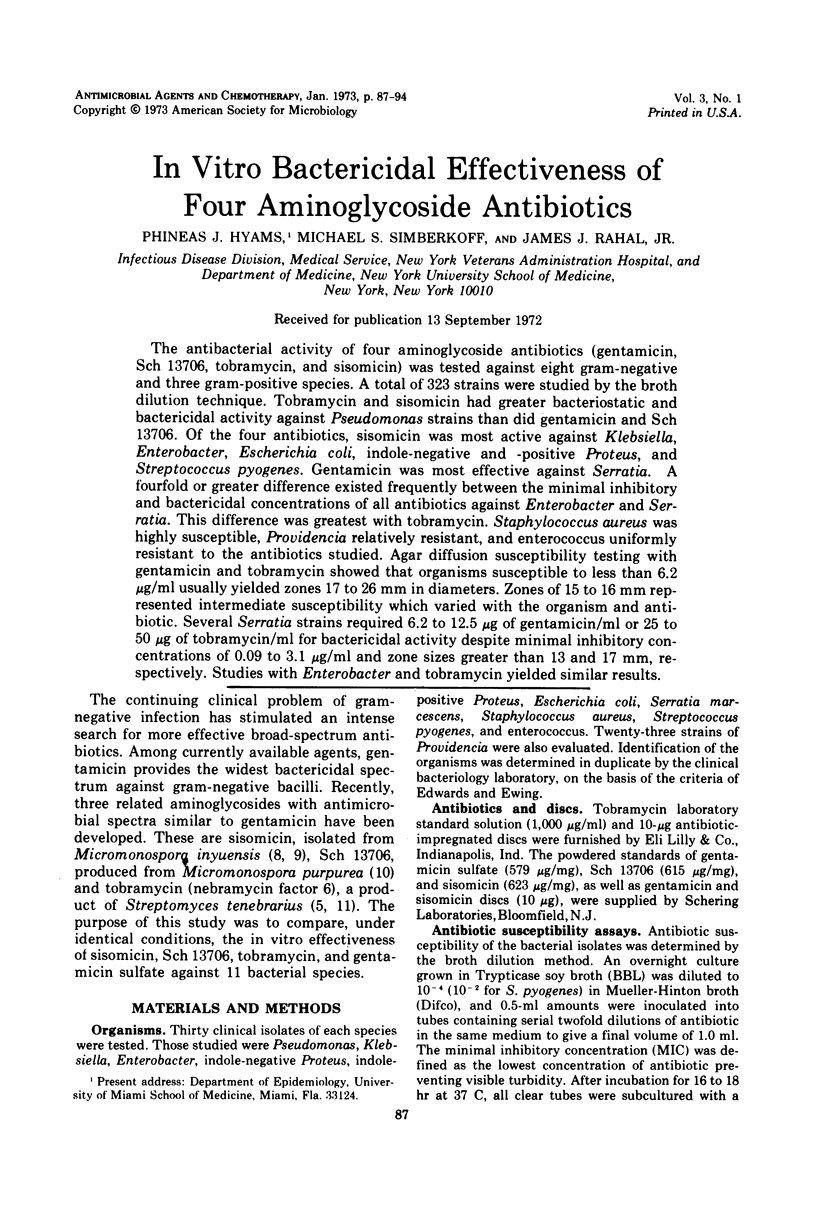
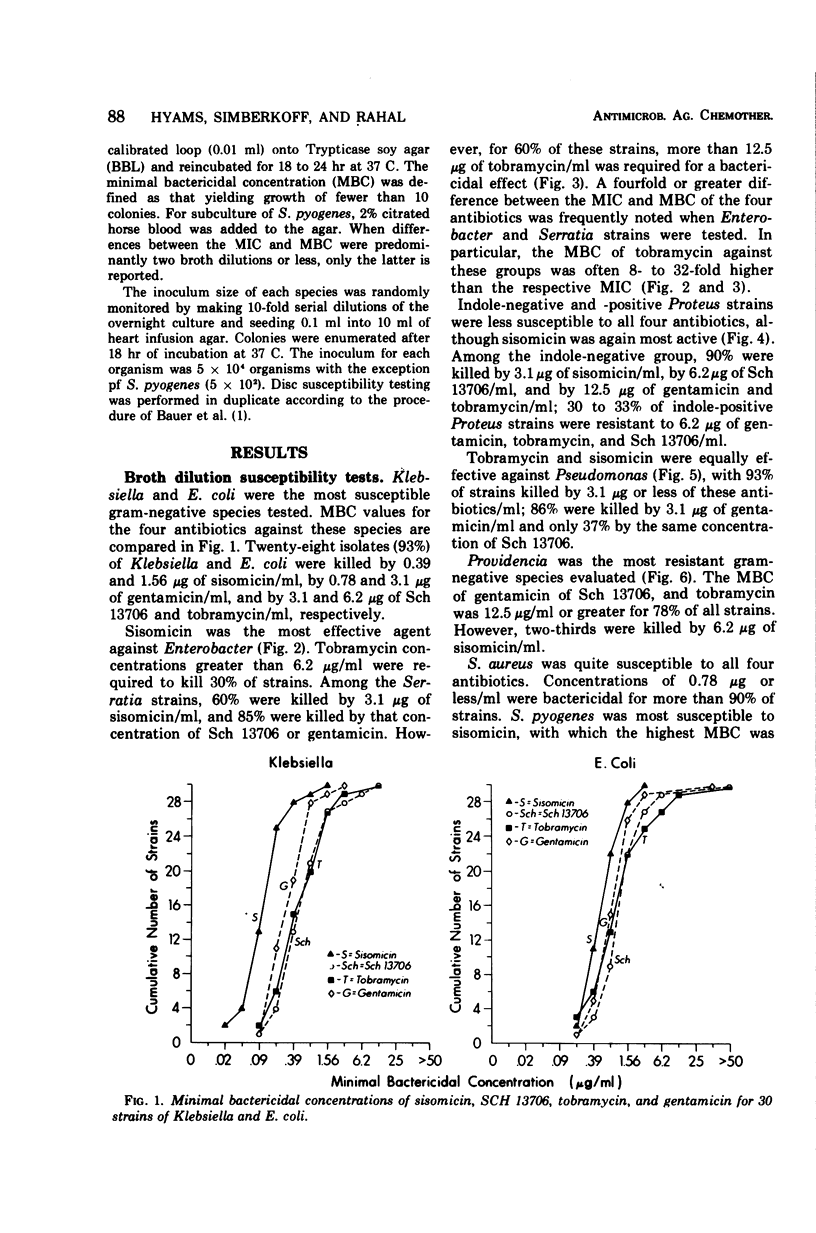
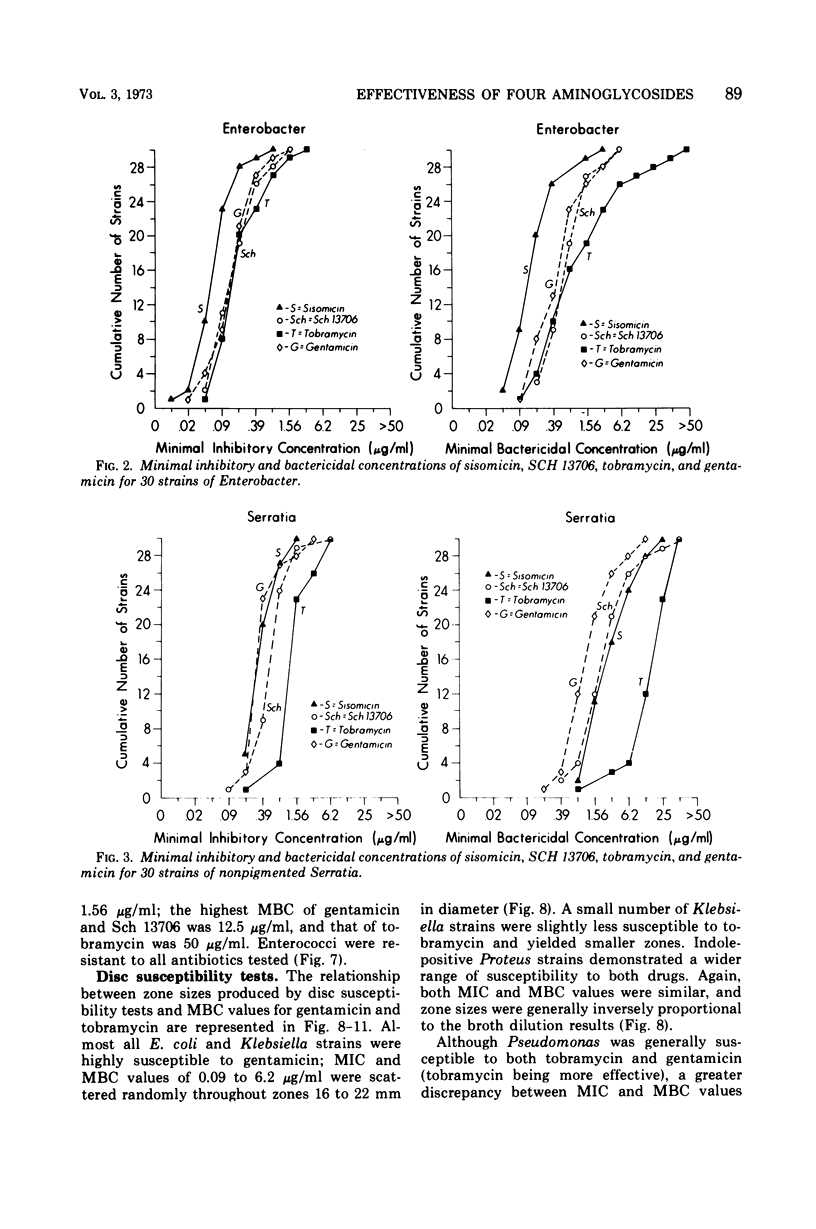
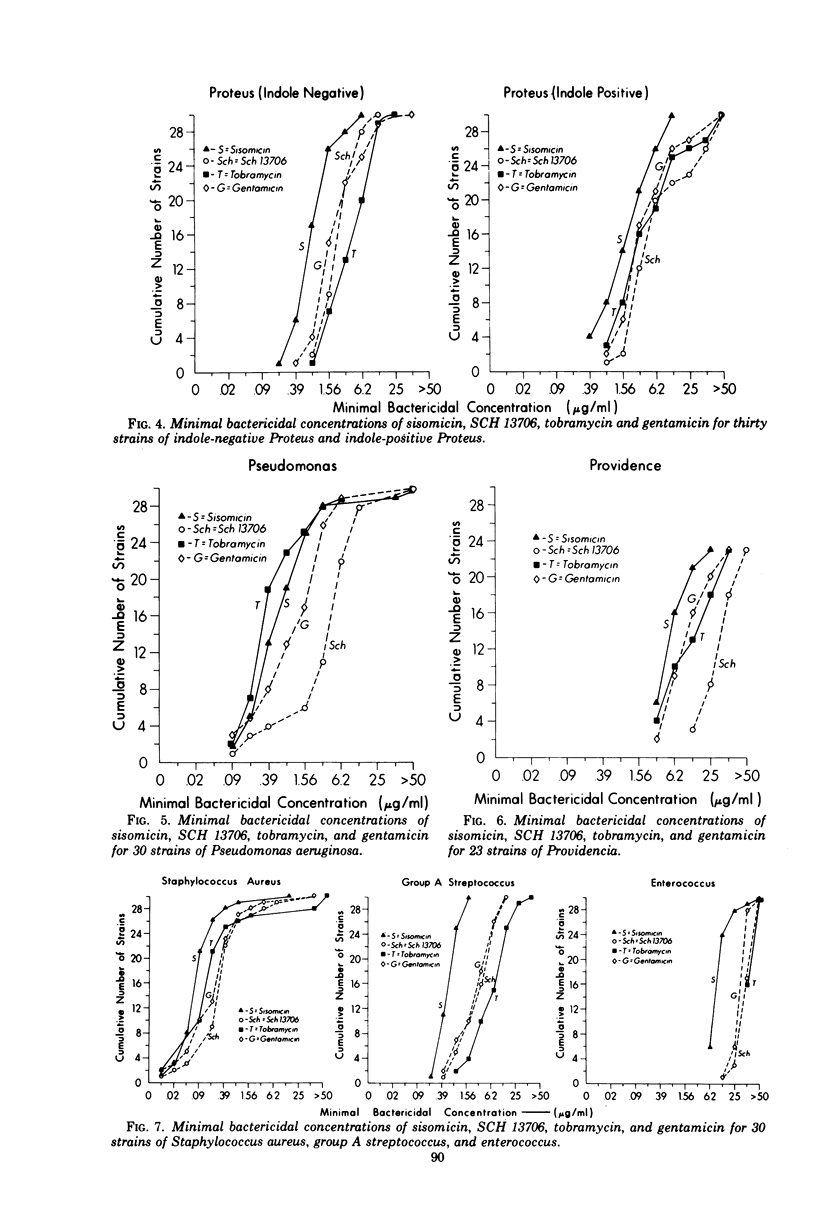
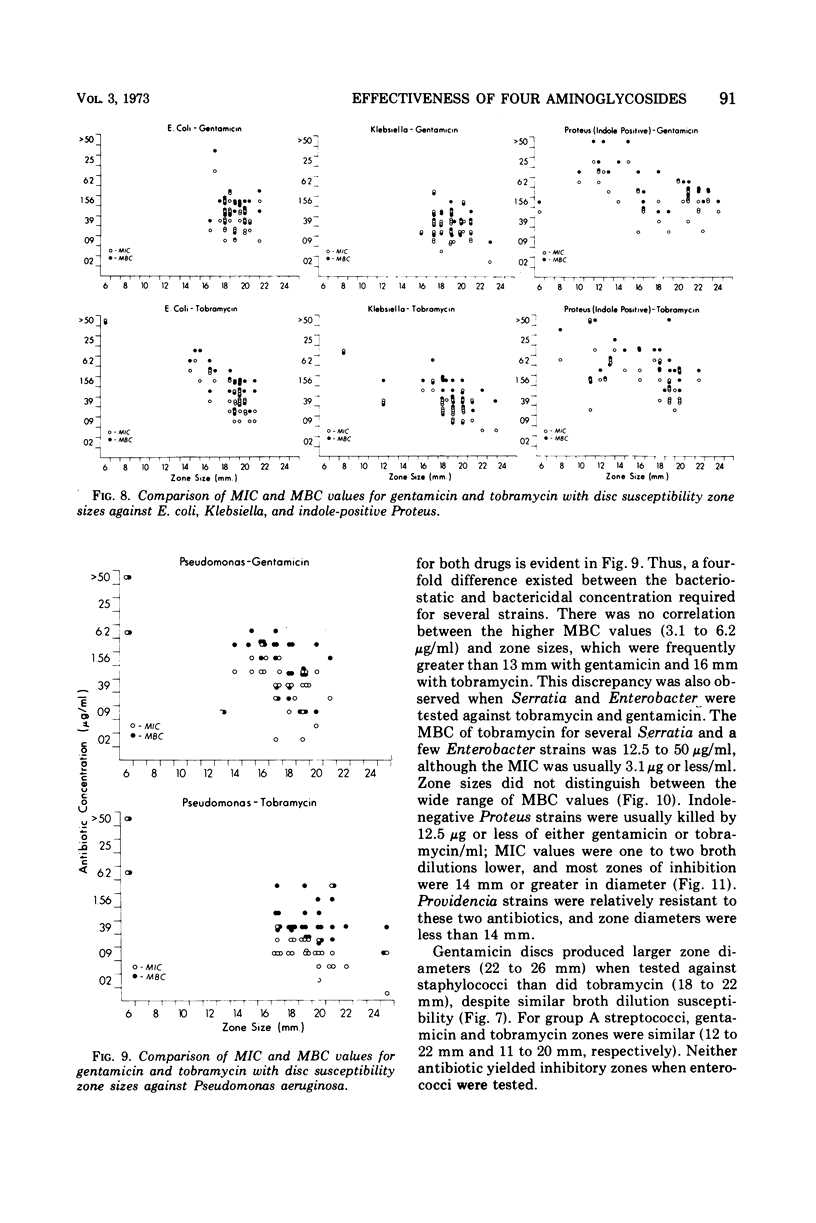
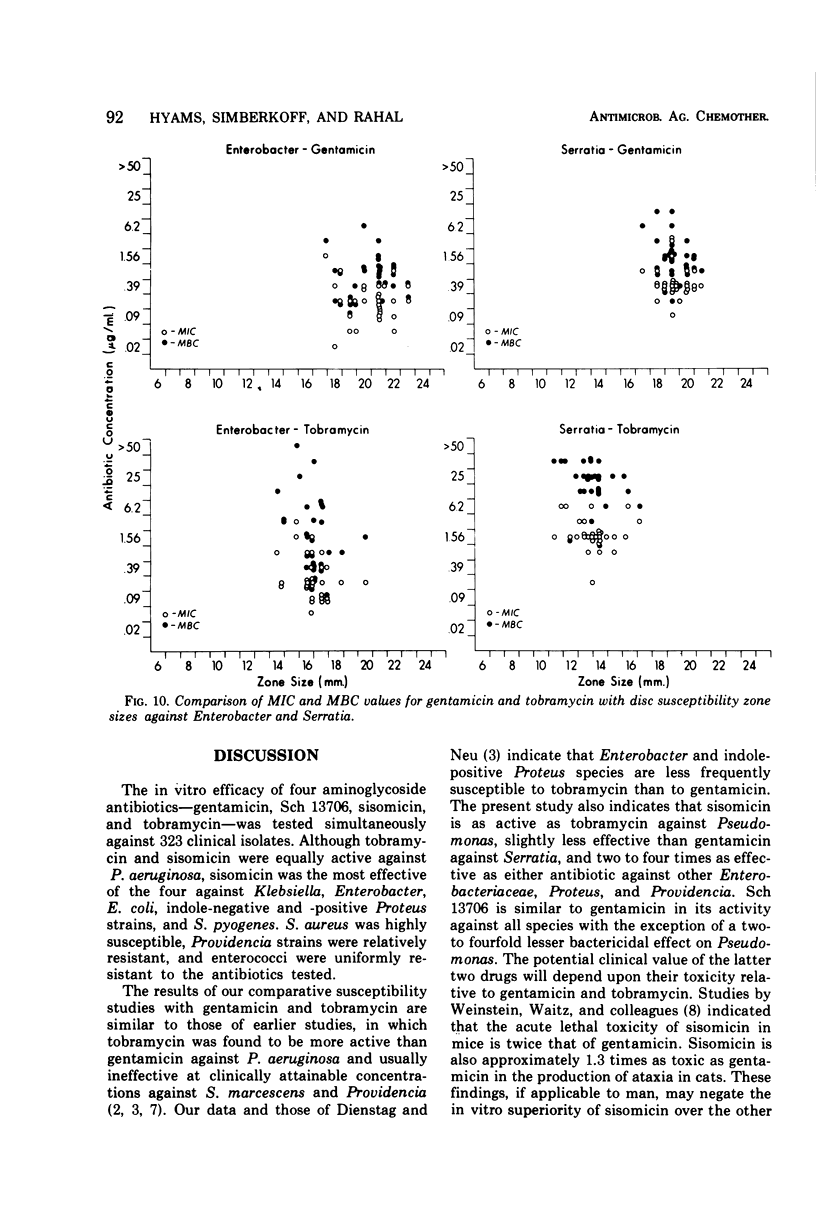
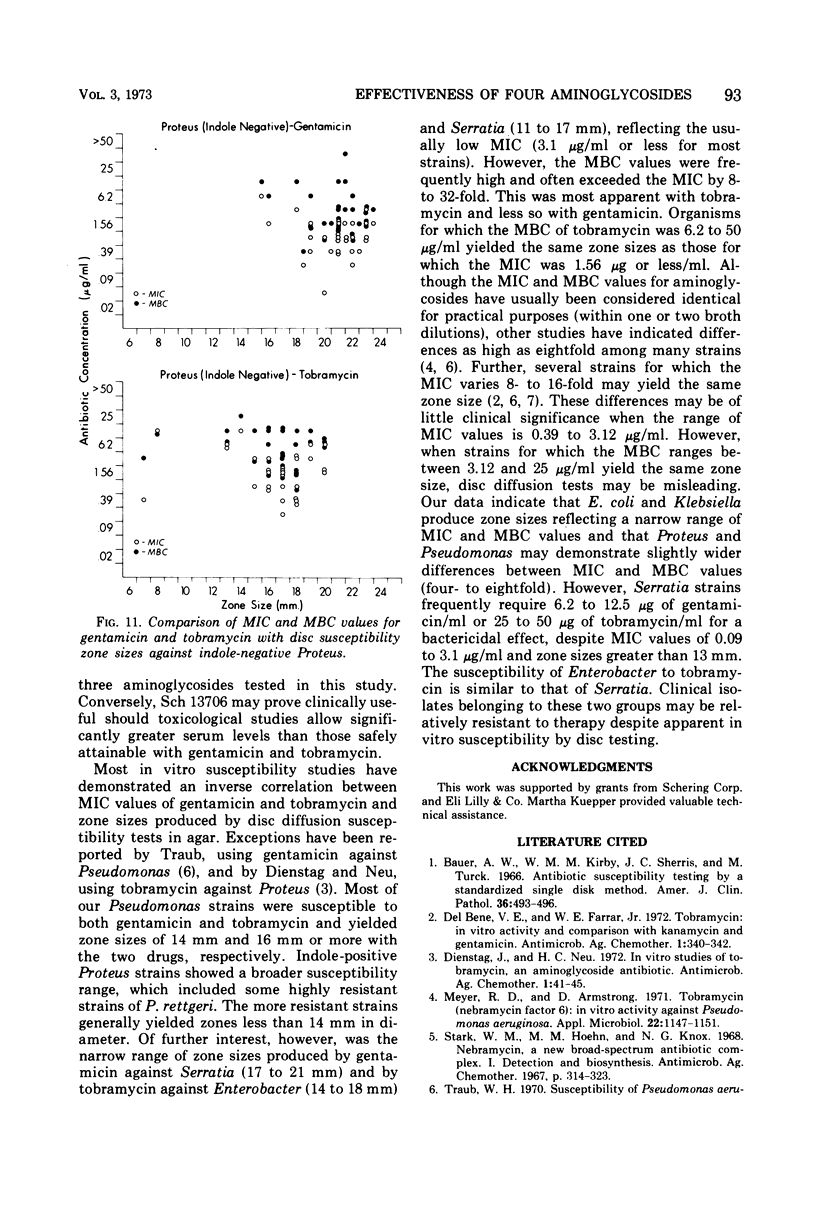
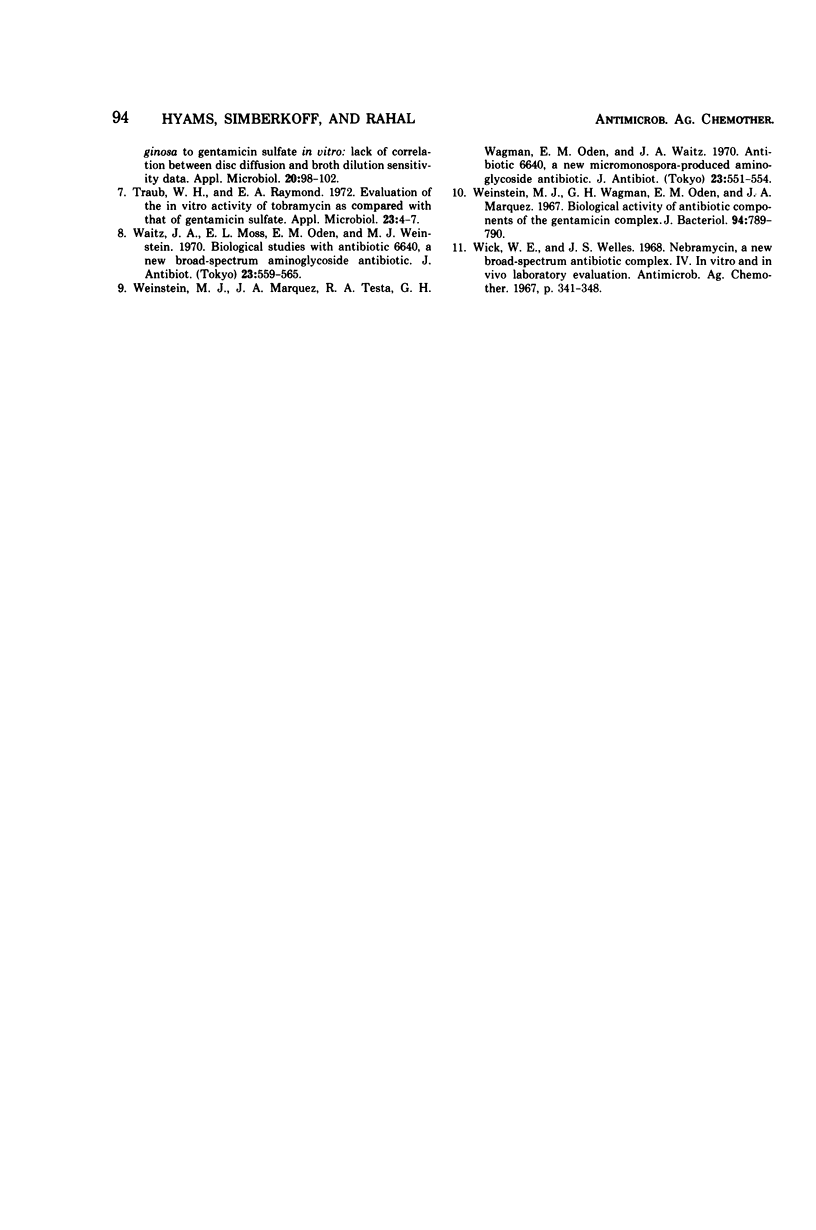
Selected References
These references are in PubMed. This may not be the complete list of references from this article.
- Bauer A. W., Kirby W. M., Sherris J. C., Turck M. Antibiotic susceptibility testing by a standardized single disk method. Am J Clin Pathol. 1966 Apr;45(4):493–496. [PubMed] [Google Scholar]
- Del Bene V. E., Farrar W. E., Jr Tobramycin: in vitro activity and comparison with kanamycin and gentamicin. Antimicrob Agents Chemother. 1972 Apr;1(4):340–342. doi: 10.1128/aac.1.4.340. [DOI] [PMC free article] [PubMed] [Google Scholar]
- Dienstag J., Neu H. C. In vitro studies of tobramycin, an aminoglycoside antibiotic. Antimicrob Agents Chemother. 1972 Jan;1(1):41–45. doi: 10.1128/aac.1.1.41. [DOI] [PMC free article] [PubMed] [Google Scholar]
- Meyer R. D., Young L. S., Armstrong D. Tobramycin (nebramycin factor 6): in vitro activity against Pseudomonas aeruginosa. Appl Microbiol. 1971 Dec;22(6):1147–1151. doi: 10.1128/am.22.6.1147-1151.1971. [DOI] [PMC free article] [PubMed] [Google Scholar]
- Stark W. M., Hoehn M. M., Knox N. G. Nebramycin, a new broad-spectrum antibiotic complex. I. Detection and biosynthesis. Antimicrob Agents Chemother (Bethesda) 1967;7:314–323. [PubMed] [Google Scholar]
- Traub W. H., Raymond E. A. Evaluation of the in vitro activity of tobramycin as compared with that of gentamicin sulfate. Appl Microbiol. 1972 Jan;23(1):4–7. doi: 10.1128/am.23.1.4-7.1972. [DOI] [PMC free article] [PubMed] [Google Scholar]
- Waitz J. A., Moss E. L., Jr, Oden E. M., Weinstein M. J. Antibiotic 6640. 3. Biological studies with antibiotic 6640, a new broad-spectrum aminoglycoside antibiotic. J Antibiot (Tokyo) 1970 Nov;23(11):559–565. [PubMed] [Google Scholar]
- Weinstein M. J., Marquez J. A., Testa R. T., Wagman G. H., Oden E. M., Waitz J. A. Antibiotic 6640, a new Micromonospora-produced aminoglycoside antibiotic. J Antibiot (Tokyo) 1970 Nov;23(11):551–554. doi: 10.7164/antibiotics.23.551. [DOI] [PubMed] [Google Scholar]
- Weinstein M. J., Wagman G. H., Oden E. M., Marquez J. A. Biological activity of the antibiotic components of the gentamicin complex. J Bacteriol. 1967 Sep;94(3):789–790. doi: 10.1128/jb.94.3.789-790.1967. [DOI] [PMC free article] [PubMed] [Google Scholar]
- Wick W. E., Welles J. S. Nebramycin, a new broad-spectrum antibiotic complex. IV. In vitro and in vivo laboratory evaluation. Antimicrob Agents Chemother (Bethesda) 1967;7:341–348. doi: 10.1128/AAC.7.3.341. [DOI] [PubMed] [Google Scholar]


